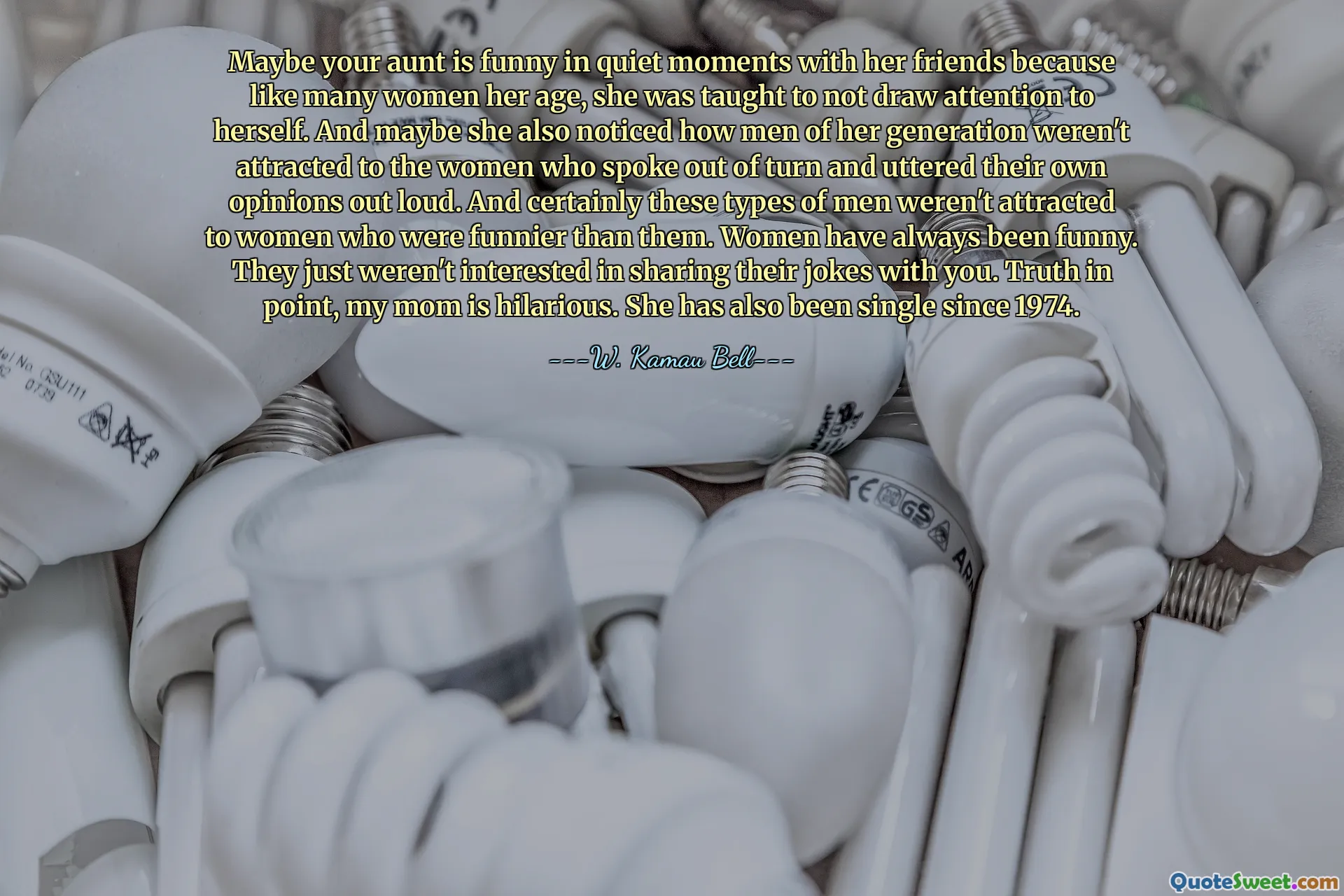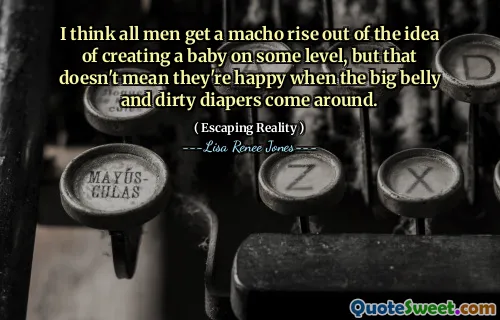
Maybe your aunt is funny in quiet moments with her friends because like many women her age, she was taught to not draw attention to herself. And maybe she also noticed how men of her generation weren't attracted to the women who spoke out of turn and uttered their own opinions out loud. And certainly these types of men weren't attracted to women who were funnier than them. Women have always been funny. They just weren't interested in sharing their jokes with you. Truth in point, my mom is hilarious. She has also been single since 1974.
This quote sheds light on the subtle ways societal expectations and gender roles influence the behavior and self-expression of women, especially in older generations. It highlights how women, like the speaker's aunt and mother, may develop a sense of humor and personality that isn't always visible or outspoken due to cultural conditioning. The idea that women were taught to avoid drawing attention to themselves aligns with a historical context where femininity was often associated with restraint, modesty, and compliance. The observation that men of their generation weren't attracted to women who displayed confidence or humor suggests that social norms discouraged women from asserting themselves, especially through wit or outspoken opinions.
It's fascinating how humor, a natural human trait, has historically been gendered and sometimes suppressed in women. The quote also underscores not only the societal pressures faced but also the personal choices women make within those confines. The mention of the speaker's mother being single since 1974 offers a glimpse into her independence, resilience, and perhaps her refusal to conform to stereotypical expectations. It challenges the stereotypical narrative that women are primarily valued for their relationship status or compliance and celebrates the individuality and humor that women possess. Ultimately, this reflection invites us to consider how cultural norms shape personal identities and how humor can serve as both a form of resistance and a means of connection among women. Recognizing these patterns can inspire a more inclusive understanding of gender roles and encourage the appreciation of authentic self-expression.
---W. Kamau Bell---










